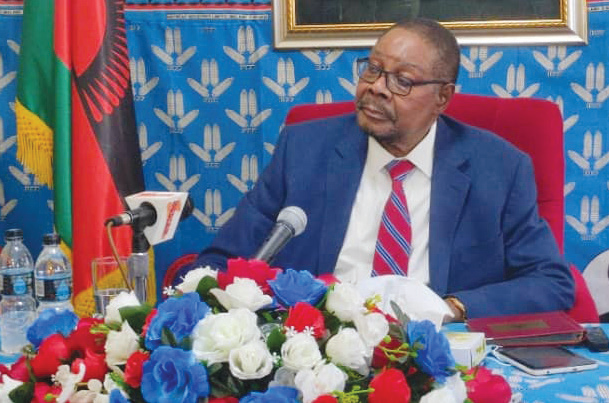Malawians need jobs, not lessons in nomenclature
Before President Lazarus Chakwera left for the European Union-AU Summit, he tore into his critics for challenging the Tonse Alliance administration’s claim that it has created more than 950 000 jobs in the 2021/22 financial year alone.
A visibly upset Chakwera questioned why Malawians wanted proof that he fulfilled his campaign promise, while no one raised an eyebrow when he announced that the country lost about 600 000 jobs in the previous year.

From his remarks in Parliament, Chakwera looks like he is desperately trying to write his own job description. For some reason, he believes he can change how the public will assess him on the Tonse Alliance’s job creation agenda by twisting the definition of employment.
This is not the first time the President and the public relations machinery behind him has resorted to clarifying nomenclature to mask his failure to honour key campaign promises. Unfortunately for him, Malawians have not bought into it.
Yes, the International Labour Organisation (ILO) defines a job as any activity that might generate income. However, it is important to note that it is a technical, if not an operational, definition that only applies within the confines of the ILO. It is not a definitive classification.
Nonetheless, Chakwera should realise that he does not work for the ILO. He works for Malawians and the jobs that he delivered contradict their aspirations when they voted him into power.
One of those aspirations is to contain unemployment. Job creation is a measure to contain unemployment, not an end. No amount of nomenclature will change that simple fact.
If Malawians were to go by the definition offered by Minister of Labour Vera Kamtukule, it would create serious problems for a systematic and coherent analysis of the progress of the drive to reduce unemployment.
If an individual got a temporary job as a distributor of subsidised fertiliser in December and lost the job once the distribution exercise was complete, should Malawians consider this a job created or one lost? Do we consider this individual currently employed or unemployed?
The ILO definition of unemployment would suggest that this person is unemployed. And all the while the President and his Ministers are debating the true definitions of the terms job, employed and unemployed, this person does not have work that would help him earn an income.
The Tonse Alliance knows as much as the public that unemployment is still as bad as it was, if not worse. What the country needs is a coherent strategy to promote job creation. Several strategies have been mooted in the past, but most have been implemented so far.
In his address to the Parliament, the President presented rural industrialisation as of the initiatives the government can use to reduce unemployment in the country. Considering that most of the unemployed population live in rural areas, this seems to be the best solution on the table.
But the plan has one major flaw. Most of the rural areas the government plans to industrialise are not connected to the national grid. Rural electrification has stagnated at one percent and there has been little investment in alternative sources of energy.
The lack of sustainable power sources will seriously undermine any efforts by the government to industrialise. It is also important to note that the 6.5 blackouts in the urban areas will probably disturb economic activity in the urban areas too. More jobs will be lost in the process.
These are the challenges that Chakwera and his lieutenants in the nine-party alliance should grapple with. As fate would have it, the perennial power shortages create a significant opportunity for the Tonse Alliance to reduce unemployment in the medium-term.
The government, through its power purchase agreements, can empower entrepreneurs in the energy sector to develop off-grid solutions to generate power for communities not connected to the national grid.
The demand is already there and all the government has to do is create a conducive environment for the market to supply.
A serious investment in entrepreneurial ventures in off-grid solutions like solar and wind will reduce the demand for power and create a conducive environment for rural industries to thrive. The industrialisation drive will further support job creation, and by extension, the drive to reduce unemployment. It is a solution that will provide lasting benefits for all parties. The government can create real jobs that won’t need multiple technical definitions to justify.





